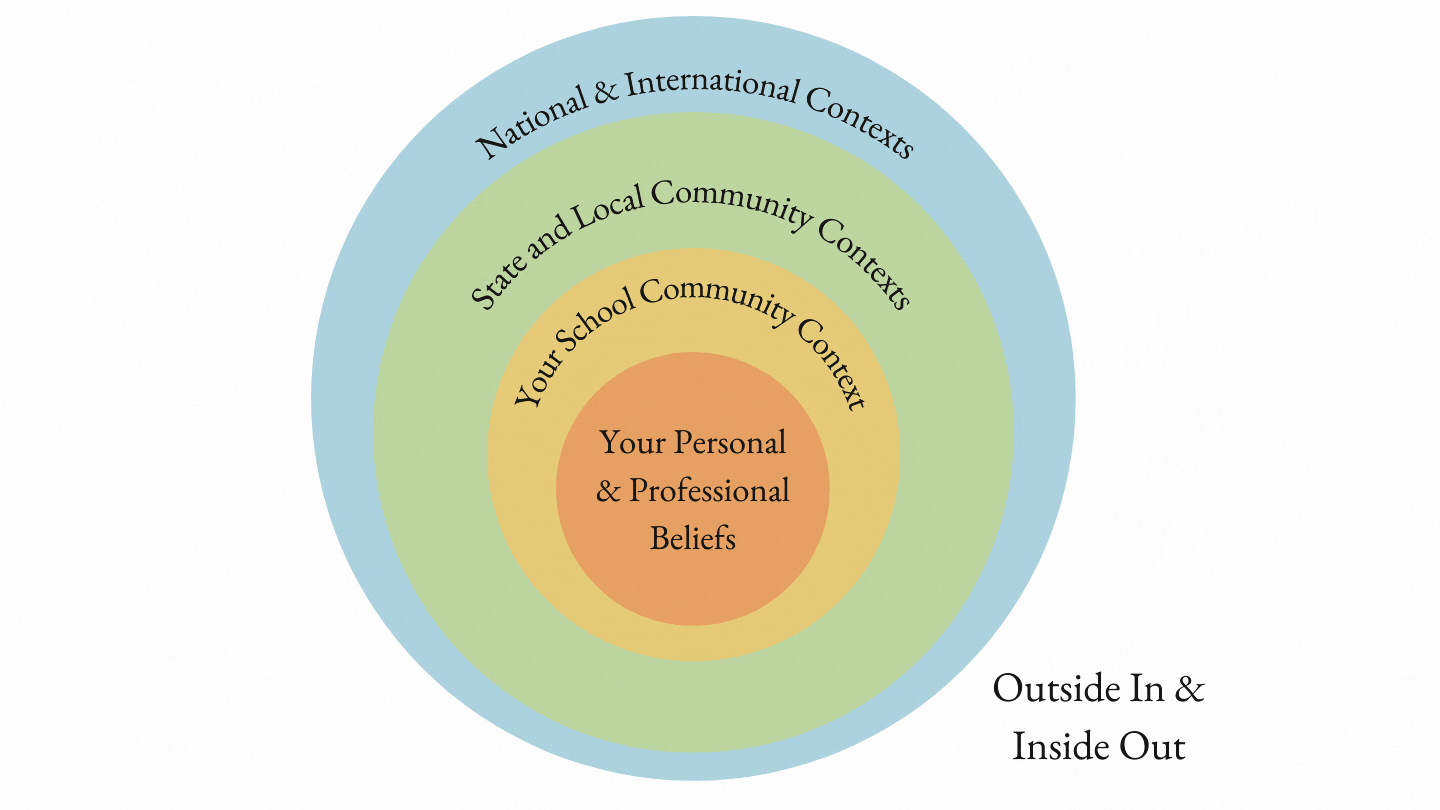Section 2: Defining Reflective Mentoring
A “Reflective” Approach to Mentoring and Mentor Training
Paying Attention
Every era in history calls for teachers —and, by extension, mentor teachers, teacher candidates, and school- and university-based teacher educators —to pay attention to a particular set of issues. Ideally, the teaching profession responds, and the issue is effectively addressed. In some time periods and contexts, the issues of the day are optional foci for teacher education programs, future teachers, new teachers, and the mentors who work with them. But in 2021, these issues are pressing and deeply-rooted, and our world, schools, colleges and universities, and communities are required to pay attention to and address them. Today these issues include notions, practices, and policies related to
-
antiracism, equity, and diversity;
-
culturally relevant teaching;
-
trauma-informed instruction;
-
social-emotional learning.
Defining "Reflective"
Reflective mentoring in part means being aware of these and other factors and considering how they inform mentors, mentees, and mentoring activities. “Reflective” in the sense that we —teachers and teacher educators, teacher candidates, new teachers, and mentor teachers —must dig deep and consider these issues and contemplate how we will explicitly address them; and “reflective” in the sense that our programs and practices and populations should always mirror the cultures, communities, and concerns of our world and time.

From “Outside In” to “Inside Out”
Thus, the Mentoring Virginia “reflective mentoring” approach operates with an explicit “outside in” and “inside out” approach to considering these pressing issues and perspectives.
The Outside In
As illustrated by the “Reflective Mentoring” graphic, “Outside In’ begins with
-
naming and exploring the largest issues, grandest questions, and most difficult challenges of our day,
-
reflecting on how these play out at the national level in terms of policy and practice, community and culture.
-
explicitly identifying and examining examples of these phenomena in our state, local, and school communities and contexts--as well as illustrations of teachers’ roles in response to these issues, questions, and challenges.
-
contemplating the evidence of these issues in individual classroom contexts, and how pedagogical and professional practices might address these topics and controversies.

The Inside Out
The reflective mentoring model simultaneously begins with and always returns to a mentor teacher’s consideration of their personal beliefs, experiences, needs, context, students, and growth. This model calls on teachers to view larger school, community, state, national, and even historical and political issues through the lenses of their own lives and students. Ultimately, these “outside in” and “inside out” mindsets and motions allow mentor teachers to function in the most reflective and responsive manner.
Pause & React
Directions: Consider each of these contexts from your own perspective. Click the link below to create a fillable worksheet in your Google Drive or download the document as a PDF.
Take a few minutes to begin to fill out this document. Then select "Next" to continue Module 1. You may return to this document to add ideas as you move through Module 1 and you can also record your thoughts in your Module 1 Companion Guide.


This website contains references. View references here to see sources.

